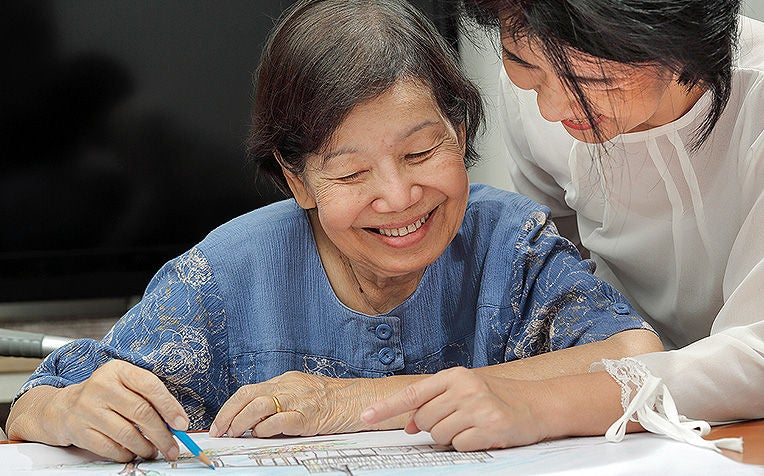
People with Parkinson's should continue to engage in leisure activities (such as hobbies, staying in touch with friends and exercise) as it helps to keep their confidence in their own abilities.
Leisure activities are essential people with Parkinson's for relaxation and pleasure. They can include physical activities such as Tai Chi and swimming, as well as more gentle activities like sewing or speaking with a friend over the phone.
However, it is common for people with Parkinson Disease to gradually reduce their participation or withdraw from leisure activities as symptoms become increasingly apparent.
"People with Parkinson Disease can have difficulty with movement such as tremors, slowness and muscle stiffness, and they may require more time and effort to complete an activity," explains Tieh Suat Kee, Occupational Therapist from the Department of Occupational Therapy at Singapore General Hospital (SGH), a member of the SingHealth group.
"This may cause them to stop taking part in leisure and social activities which they once enjoyed because they get tired more easily, or because they feel they cannot keep up. This can result in their mental health being affected as they lose confidence in their own abilities and experience a loss of role and identity which was gained from their leisure activities," she adds.
It is important for people with Parkinson Disease to stay physically, mentally and socially active through leisure activities. While the movement difficulties and other symptoms such as fatigue and depression can indeed make it more challenging, it is helpful to adopt a positive attitude and not be discouraged by thinking that participation in leisure activities is an impossible task. There are strategies that can be put in place to enable individuals to continue to enjoy their leisure activities.
Benefits of leisure activities for people with Parkinson's
Besides the benefit of improving physical well-being and slowing the disease progression, leisure activities can create opportunities for social interactions so that people with Parkinson Disease are not socially isolated.
Leisure activities are also beneficial for an individual’s mental health by helping to reduce stress and allowing the person to feel relaxed. Focusing on participating in leisure activities that one enjoys can allow the person with Parkinson Disease to perhaps even forget about their symptoms for a while. It also enhances self-worth and confidence by allowing the person to experience a sense of achievement for participating in or completing a task.
Important considerations when picking leisure activities for people with Parkinson's
Plan ahead and schedule activities according to medication routine.
Plan for rest breaks between activities
Use energy conservation strategies
For example, break down an activity into smaller tasks to be done across the day. Sit down to do the activity.Modify tools and try simple adaptations
For example, add a tubing or wrap a cloth around thin objects such as a paintbrush to make it easier to hold.Stretch and warm up before engaging in physical activities.
Explore areas of interest and new hobbies
Use an interest checklist (like this) as a guide.Join a support group and participate in activities with other people with similar interests and experiences.
Ref: L20
Check out other articles on Parkinson's disease:
Parkinson's: Early Signs and Symptoms
Contributed by


















 Get it on Google Play
Get it on Google Play